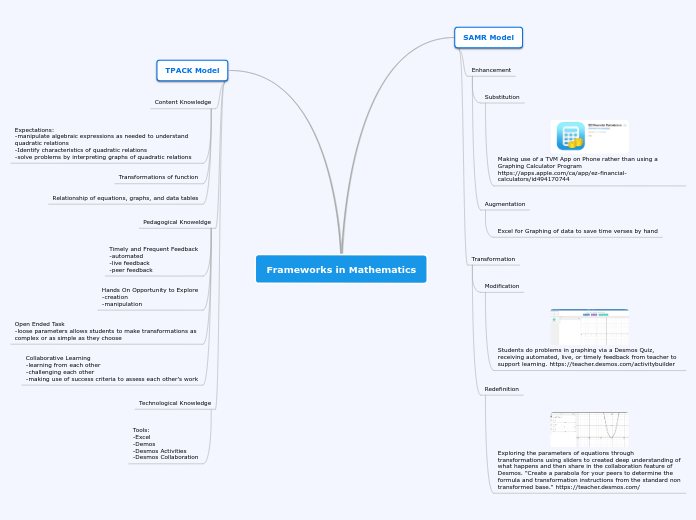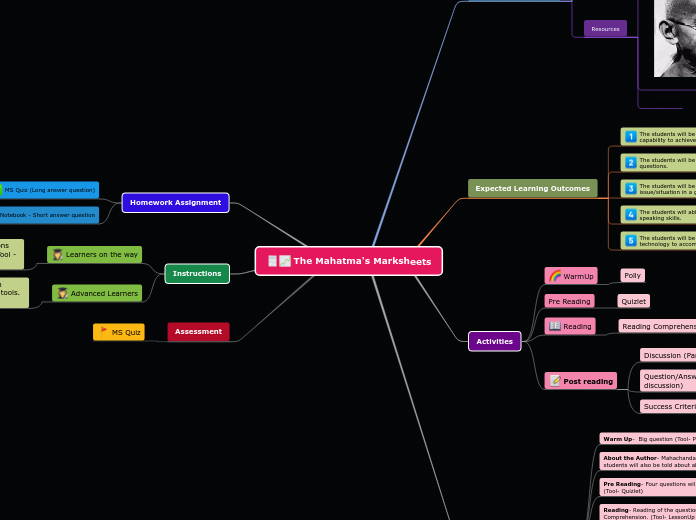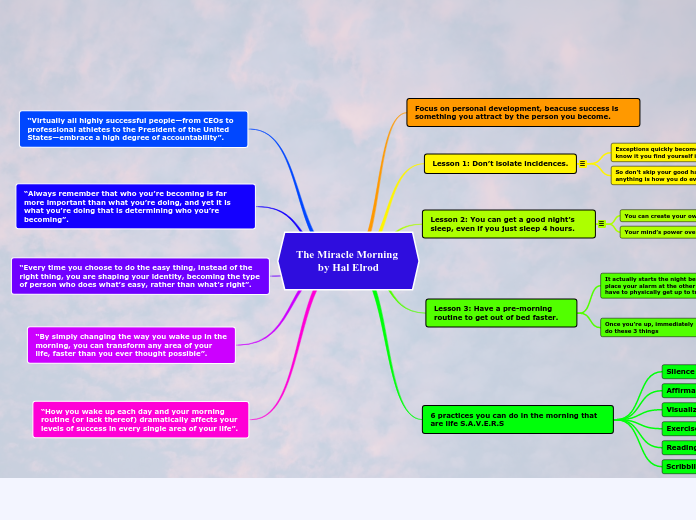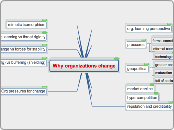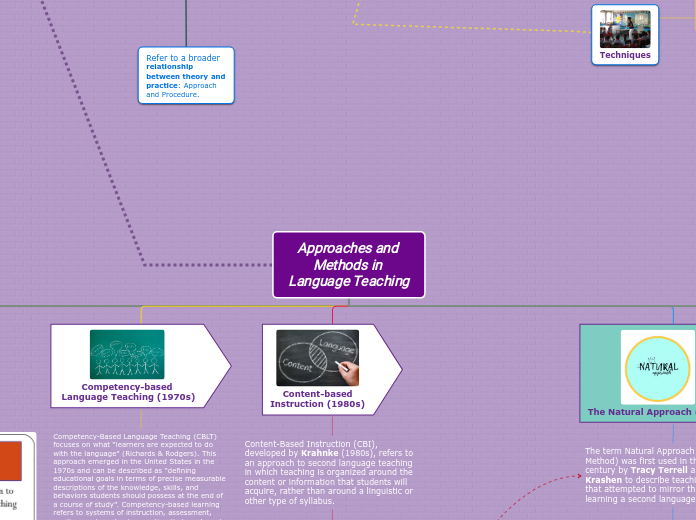Frameworks in Mathematics
TPACK Model
Technological Knowledge
Tools:
-Excel
-Demos
-Desmos Activities
-Desmos Collaboration
Pedagogical Knoweldge
Collaborative Learning
-learning from each other
-challenging each other
-making use of success criteria to assess each other's work
Open Ended Task
-loose parameters allows students to make transformations as complex or as simple as they choose
Hands On Opportunity to Explore
-creation
-manipulation
Timely and Frequent Feedback
-automated
-live feedback
-peer feedback
Content Knowledge
Relationship of equations, graphs, and data tables
Transformations of function
Expectations:
-manipulate algebraic expressions as needed to understand quadratic relations
-Identify characteristics of quadratic relations
-solve problems by interpreting graphs of quadratic relations
SAMR Model
Transformation
Redefinition
Exploring the parameters of equations through transformations using sliders to created deep understanding of what happens and then share in the collaboration feature of Desmos. "Create a parabola for your peers to determine the formula and transformation instructions from the standard non transformed base." https://teacher.desmos.com/
Modification
Students do problems in graphing via a Desmos Quiz, receiving automated, live, or timely feedback from teacher to support learning. https://teacher.desmos.com/activitybuilder
Enhancement
Augmentation
Excel for Graphing of data to save time verses by hand
Substitution
Making use of a TVM App on Phone rather than using a Graphing Calculator Program
https://apps.apple.com/ca/app/ez-financial-calculators/id494170744
